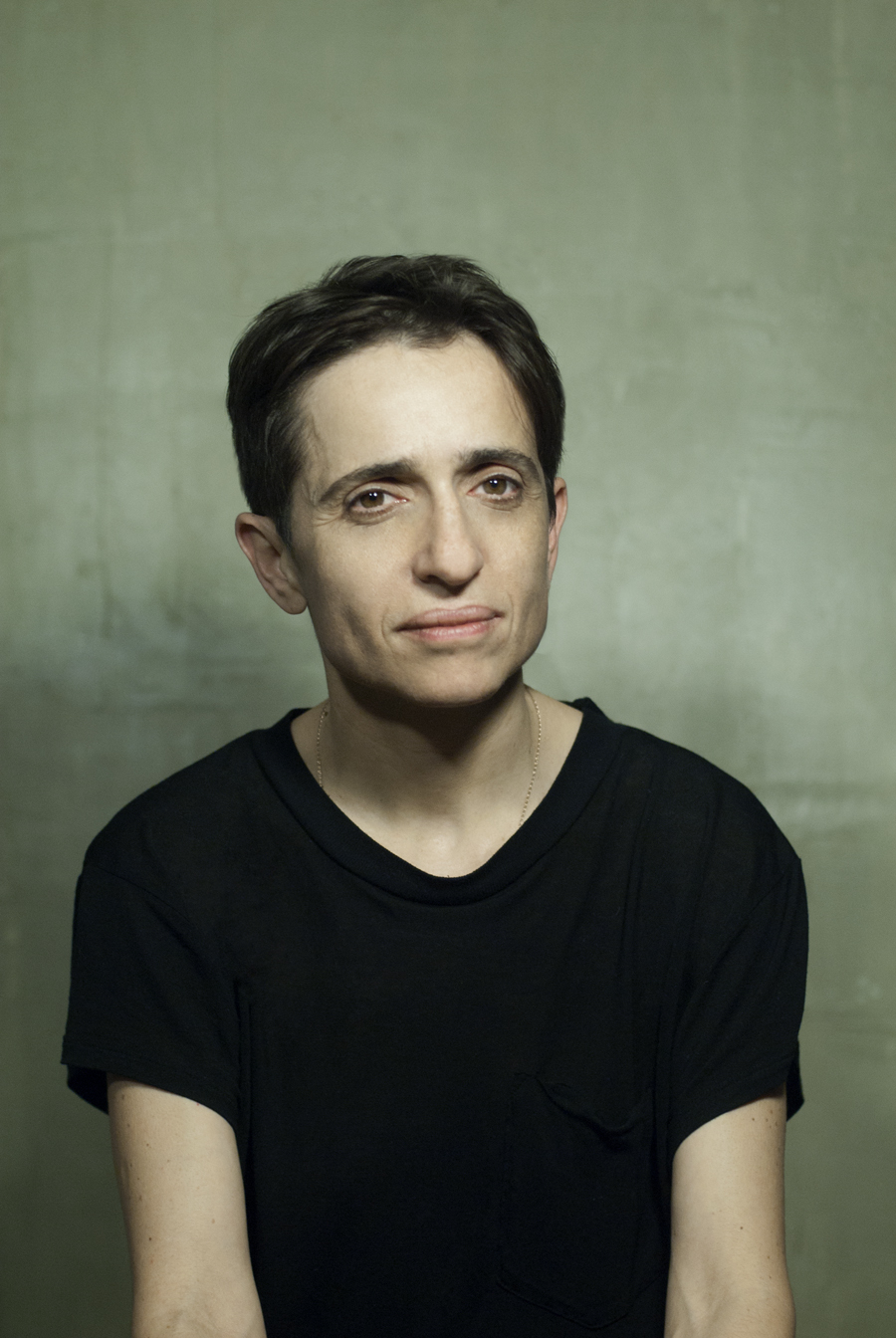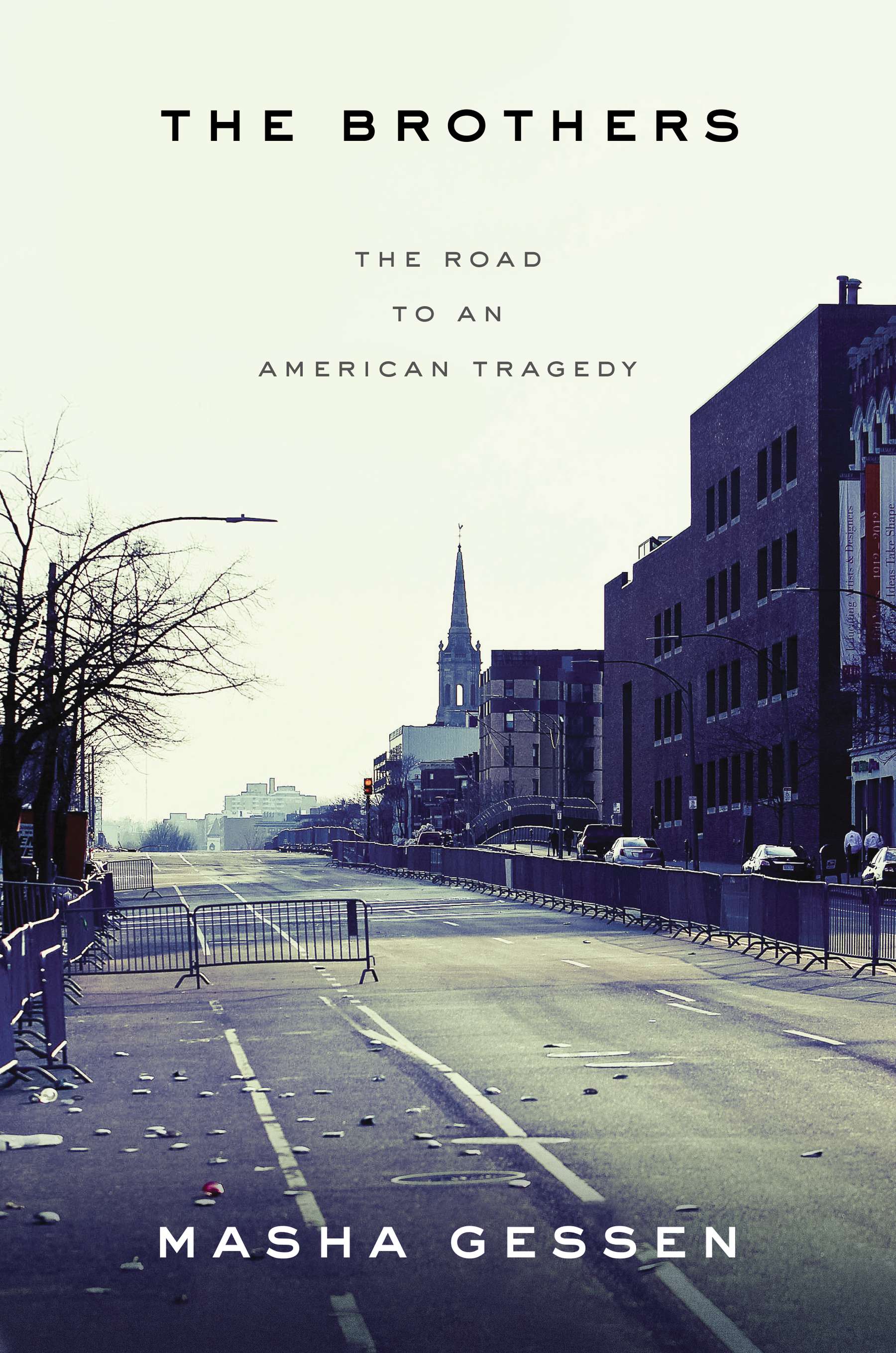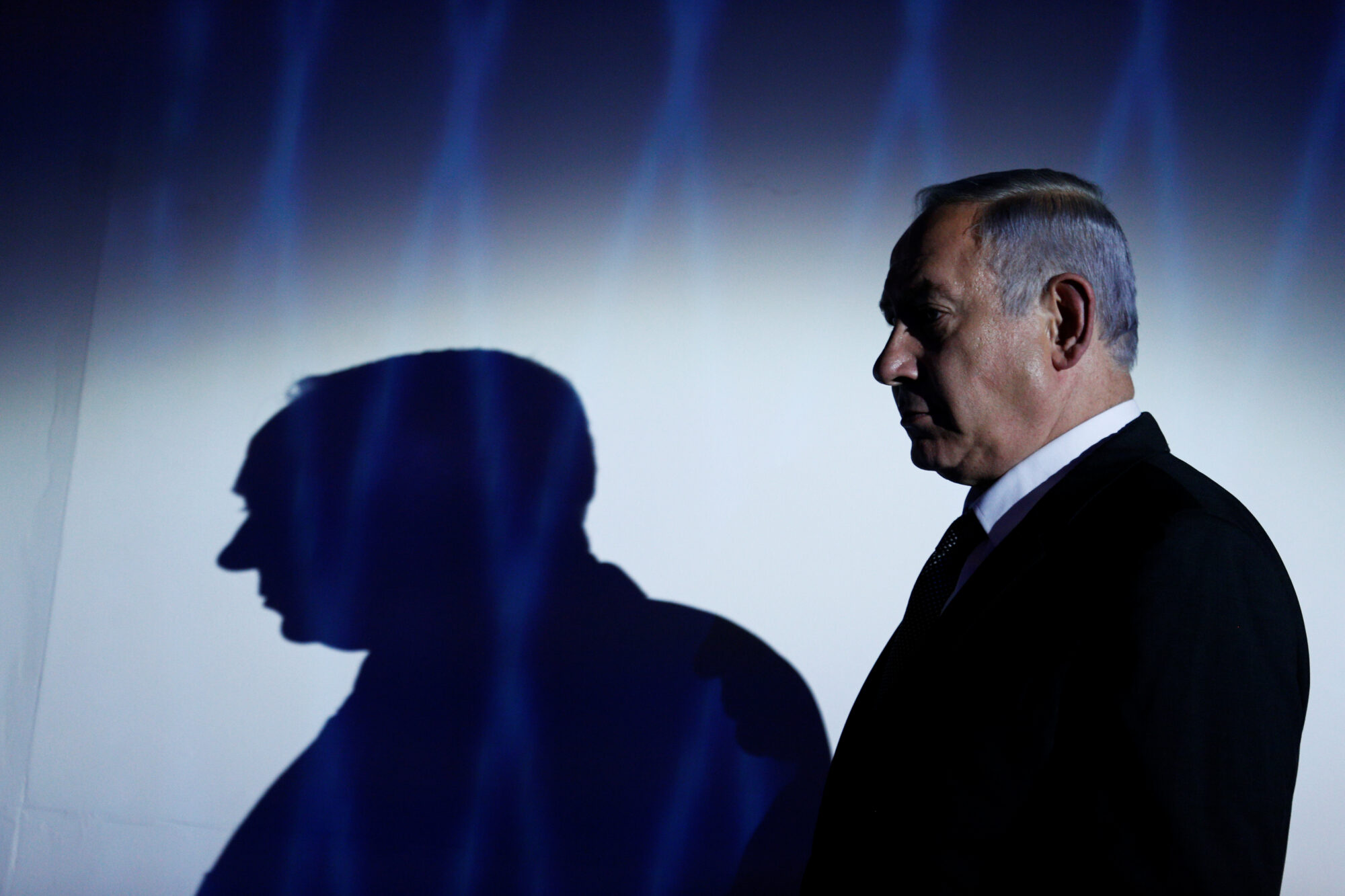In her new book, “The Brothers: The Road to an American Tragedy,” 2004 Nieman Fellow Masha Gessen recounts the lives of Tamerlan and Dzhokhar Tsarnaev up through the Boston Marathon bombing and its aftermath. She argues that the Tsarnaevs’ story is ultimately a tragic one. “As for the brothers themselves, theirs remains a small story, in which nothing extraordinary happens—or, rather, no extraordinary event is necessary to explain what happened,” she writes. “One had only to be born in the wrong place at the wrong time, as many people are, to never feel that one belongs, to see every opportunity, even those that seem within reach pass one by—until the opportunity to be somebody finally, almost accidentally presents itself.”
Gessen has contributed articles about Dzhokhar Tsarnaev’s trial to The Washington Post; she often writes about the nuances missed when translating Russian to English in the courtroom. Gessen has lived in both Russia and the U.S. and has worked for media outlets in both countries. She currently lives in New York City. Gessen is the author of six other books, including “The Man Without a Face: The Unlikely Rise of Vladimir Putin.” “The Brothers” will be published by Riverhead on April 7.
What was the biggest challenge reporting and writing this book? It must have been hard to write a book in which you can't talk to your main characters, and so much of the history took place abroad. It seems like you went to great lengths to get those facts right.

Getting the facts right is always important. Actually, that wasn't such a huge issue. My last four books have been about people that I can't talk to, so that happened, but it was nothing new.
What was new and difficult was that the two worst things that can happen to sources had happened to my sources. One was that they had experienced an absurd amount of media attention right after the bombing. Friends, classmates, neighbors, family members had been all thrown into the public for several weeks after the bombing. That's actually very difficult, and sometimes traumatic for people who are not used to being public. Even though I started researching it almost immediately, I was still always trailing behind CNN and AP. Those sources will have talked to reporters, and often people felt like they'd said more, and had been exposed more, than they wanted to be.
The other thing was that people had been harassed by the FBI, and not just in the Boston area, and not just in the United States.
What have you taken away from covering Dzhokhar Tsarnaev’s trial? In your Washington Post stories the idea of what is lost in translation, or what is frustrated by translation, is a recurring theme. Do you feel that Dzhokhar isn't getting a fair trial because of this, or are there other issues with the way his trial has proceeded?
The biggest issue doesn't have to do with translation, it has to do with two structural things. One is the existence of the death penalty, and the fact that this is a death penalty trial, and the fact that this is a death penalty trial in a non-death penalty state, which means that the jury pool is hugely skewed.
Another issue, it should have been moved from Massachusetts. There are people on the jury who have connections, not like first-degree connections, but a lot less than six degrees of separation from the bombing. A third of the members of the jury went in believing that he was guilty.
Finally, the third thing that I find really disheartening is that we're looking at the trial hoping to get some information about the bombing. That's not the purpose of a trial in an American court. The purpose of a trial in an American court is to determine punishment. It's not actually designed to figure out what happened, and we're not going to figure out what happened from the trial. We still don't know who made the bombs, and where, and when. It would be unreasonable to expect it to come out. It is unreasonable to expect it to come out at the trial, but I think everybody did, including me. But who else is going to tell us that?
The FBI hasn't figured it out, and is under no real pressure to figure it out. The report from the House committee on the bombing contained less information than a lot of the media reports. Unfortunately, the trial is serving as the final affirmation of the fact that we're never really going to find out what happened.
You consciously choose to tell the story with the Tsarnaev brothers as the protagonists, and then with very little focus on the devastation that their actions wrought. Why did you decide to make them the protagonists? Did you feel like that was a story that hadn't been told, and the stories of the immediate aftermath had already been told well enough?
I felt that this was the story that only I could tell. I'm uniquely positioned to write about this. I covered both wars in Chechnya. I grew up in the Soviet Union. I've covered a lot of the terrorism there. I was a teenager living in the Boston area, working as a Russian-speaking immigrant out there.
I felt like I had a lot of significant insight into the story, even just going in, that other reporters hadn't lived. I'm not saying that anybody can tell the story of death and devastation, but I think that people who were on the ground in Boston that day, and in the next few days, were in a much better position to tell that story. You had to be there. In order to tell the brothers’ story, you had to have certain other steps. Those happened to be the ones that I brought to the project.
In the last chapter of the book you focus on conspiracy theories and argue that the FBI might be covering up something regarding Tamerlan Tsarnaev. Why did you feel it was important to include these theories?
I felt they were important because I think they're part of the story. With the facts on which there's absolute consensus—which includes the fact that the FBI interviewed Tamerlan in 2011—there's no doubt that the FBI screwed up.
The bare minimum here is that we have someone who was identified as a potential terrorism risk, and personally interviewed, who not only goes and commits an act of terrorism, but also cannot be identified for days afterwards. The FBI should have been keeping an eye on him, and should have realized that he was more than a negligible risk. But even if they failed to do that, they should have been able to identify him earlier than on the day that he committed the murder of the MIT police officer.
Do you see any similarities between what happened with the Tsarnaev brothers and the Charlie Hebdo attacks?
As I say plainly in the book, we've been thinking about terrorism all wrong. We've been thinking about terrorism through this prism of radicalization which creates the fiction that there is an identifiable, staged process of radicalization that you can follow. There's very little evidence for that. What there is evidence for is that the people who are most likely to become terrorists are middle-class, or lower-middle-class, marginalized immigrants, people who live in very small insular communities, and much of their social connections are limited to those communities.
All of those things are true, not only of the Tsarnaev brothers and the Charlie Hebdo attackers, but also of the Copenhagen attackers. They are largely true of the Sydney terrorist—the guy who seized a cafe, took hostages in the cafe in Sydney in December. They're also true of Jihadi John, who grew up in London, and went to university in England.
The distinction I'm drawing here is that I'm pointing at structural stuff more than at the psychologizing stuff, because I think the psychologizing—“they were unlucky, and they didn't assimilate"—that's valid. But that actually will steer us back to the radicalization narrative, which is not particularly useful, whereas the structural analysis is actually very useful.
Portions of this interview have been edited and condensed for clarity



